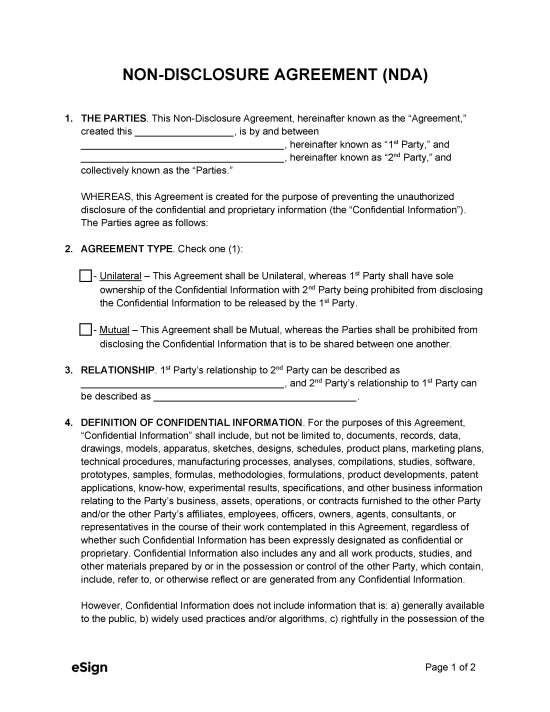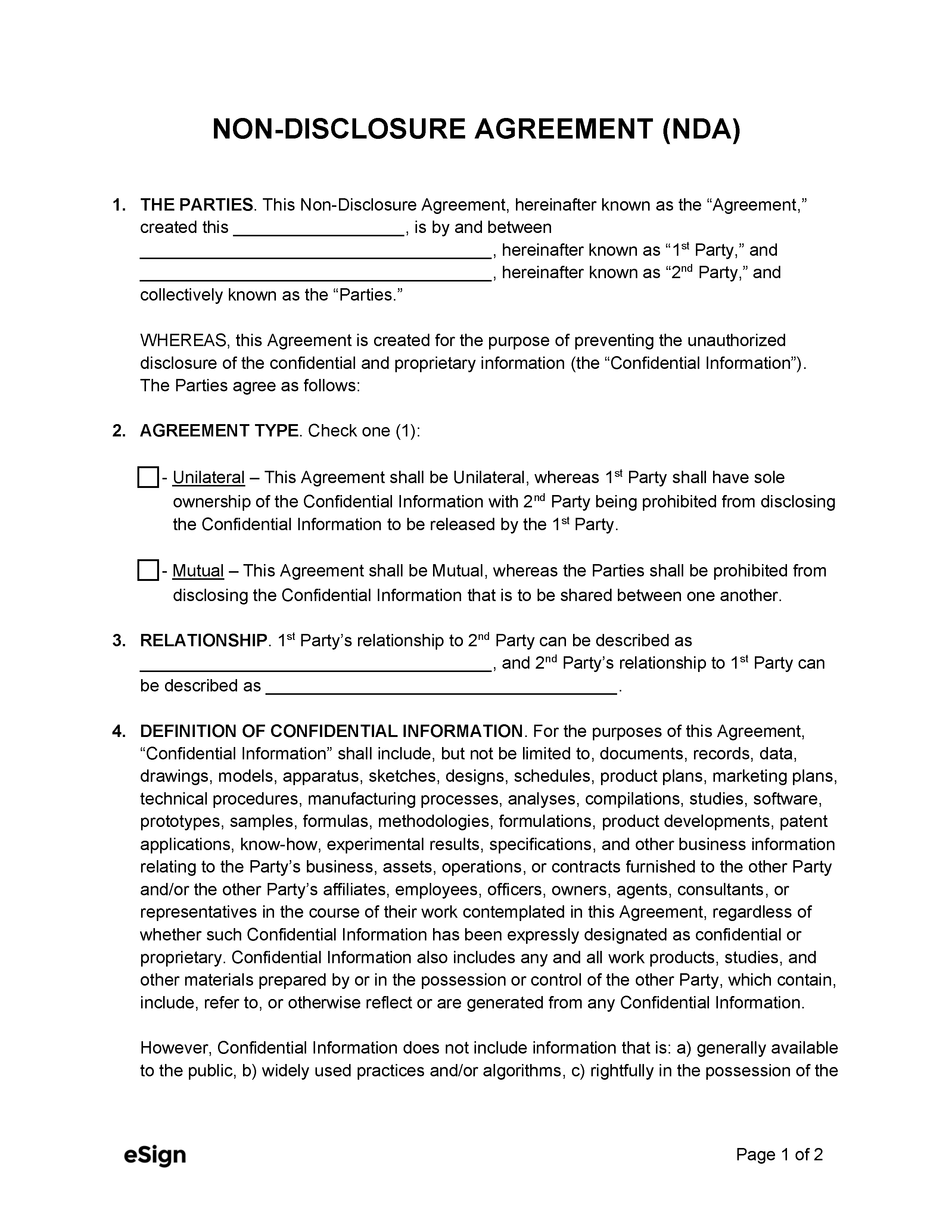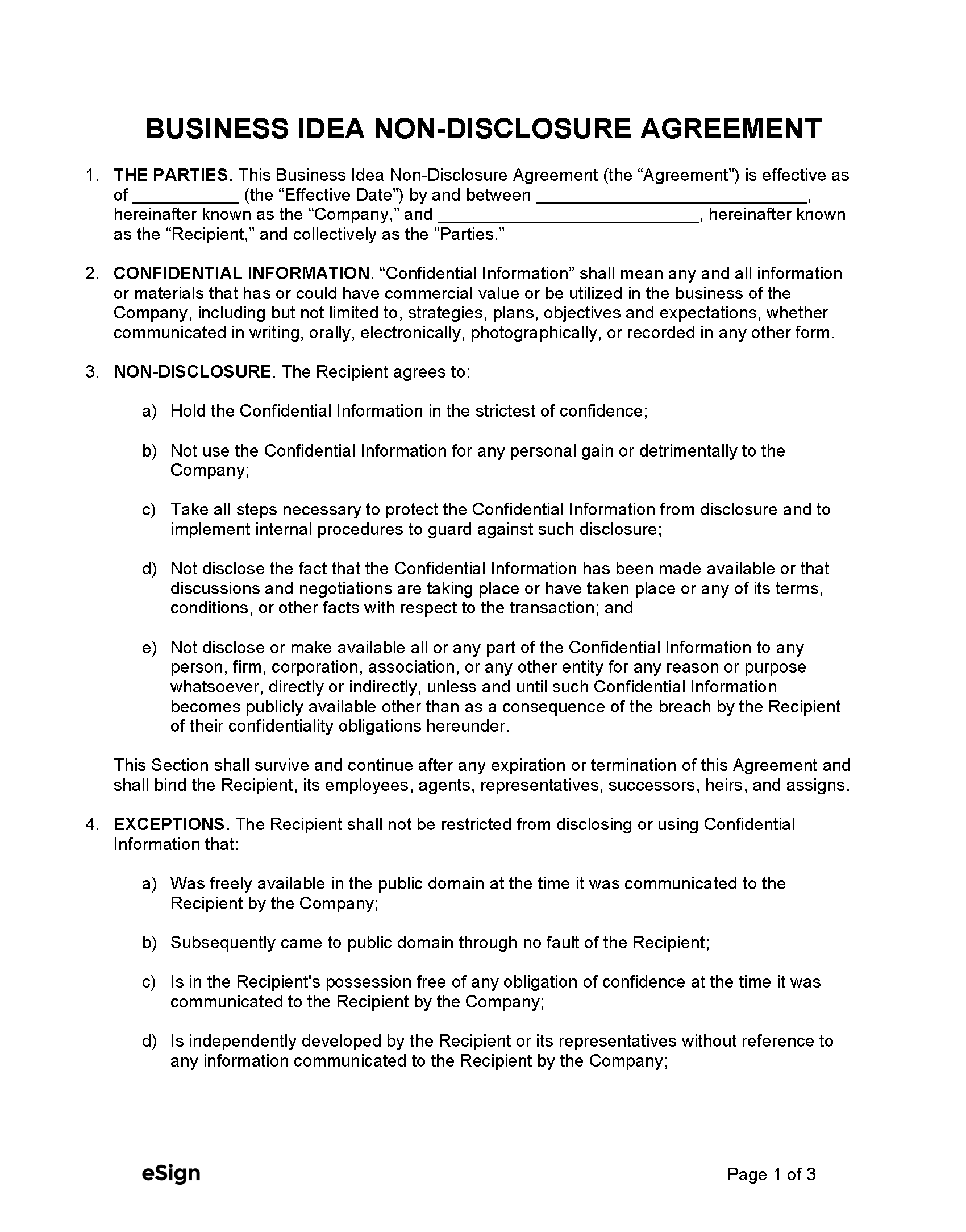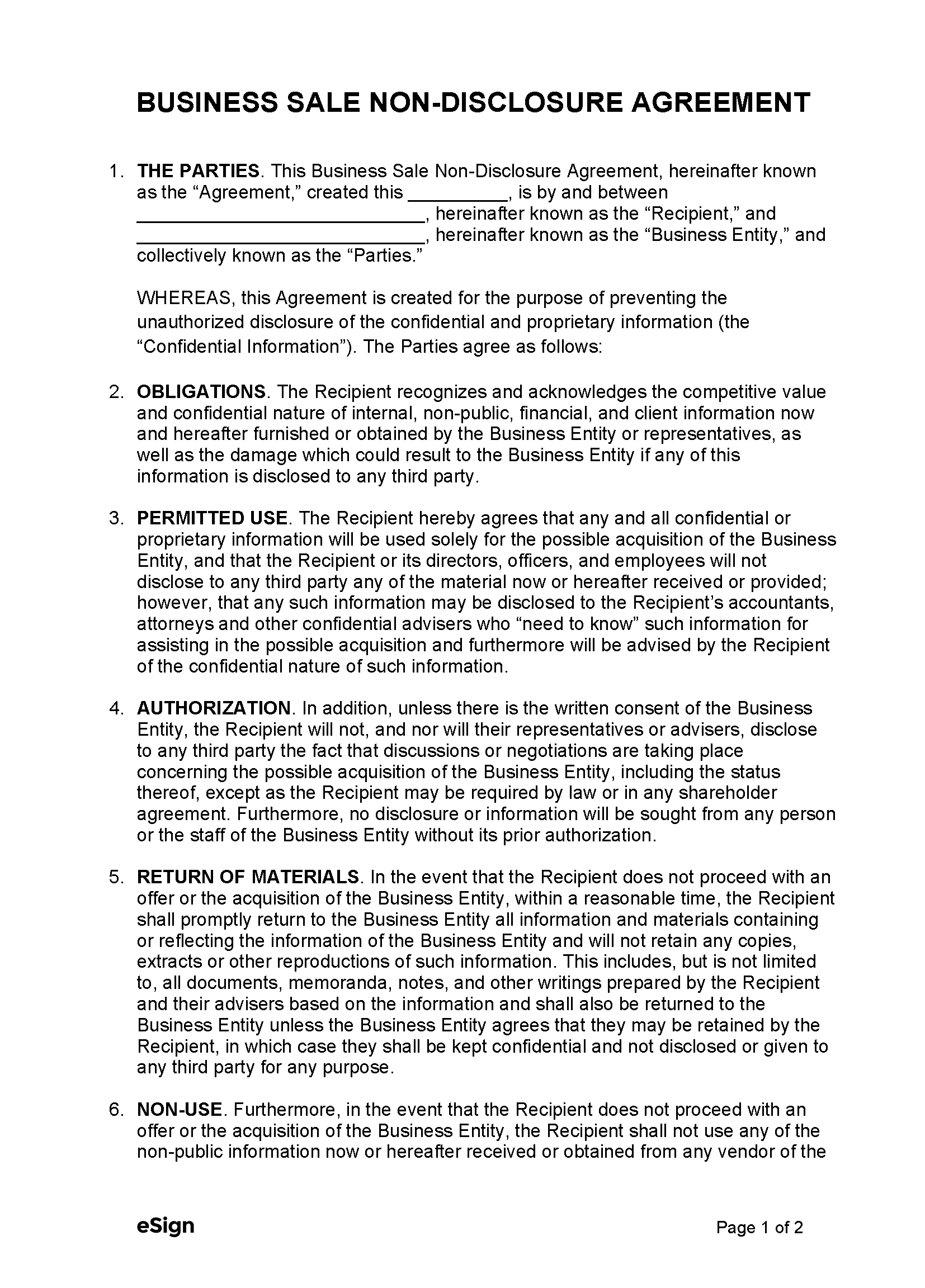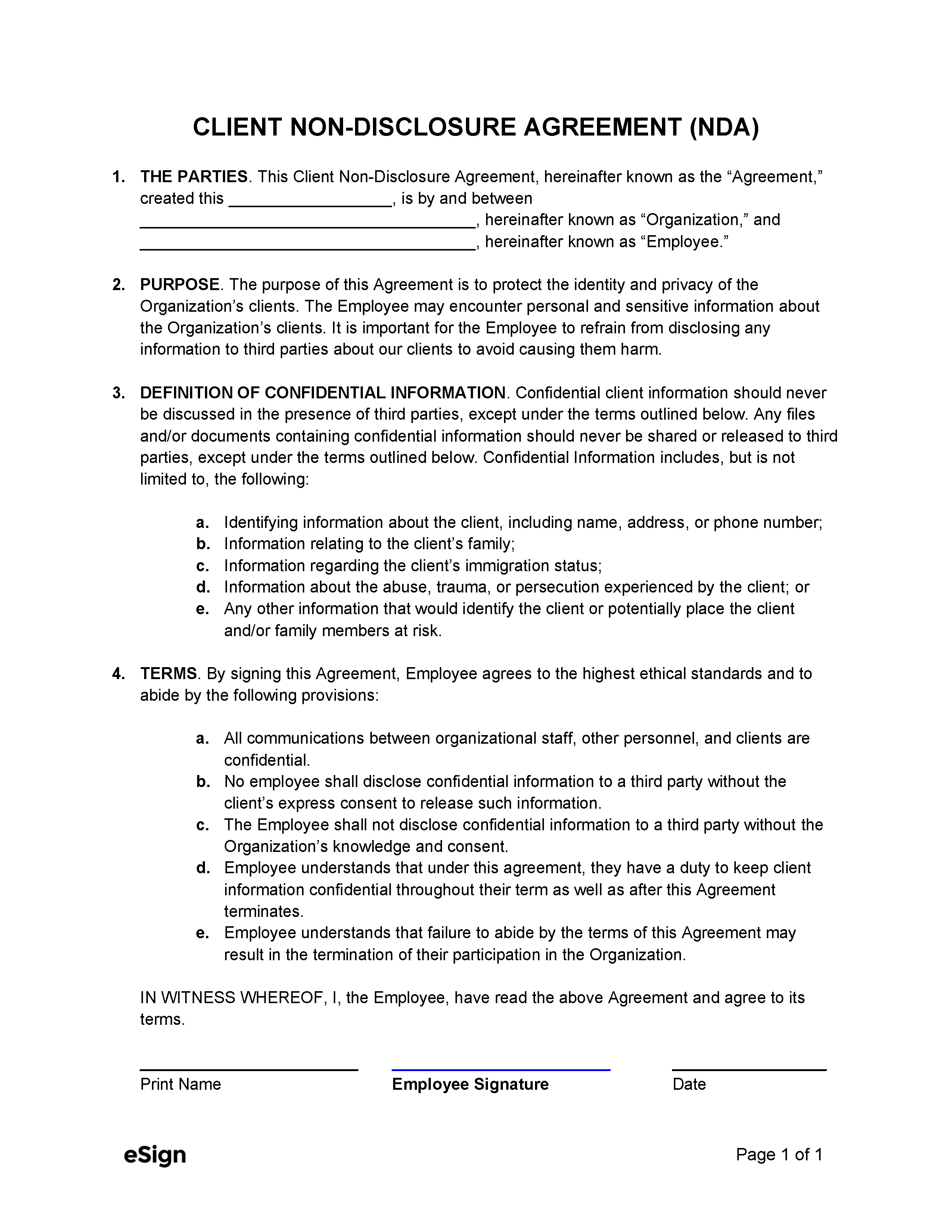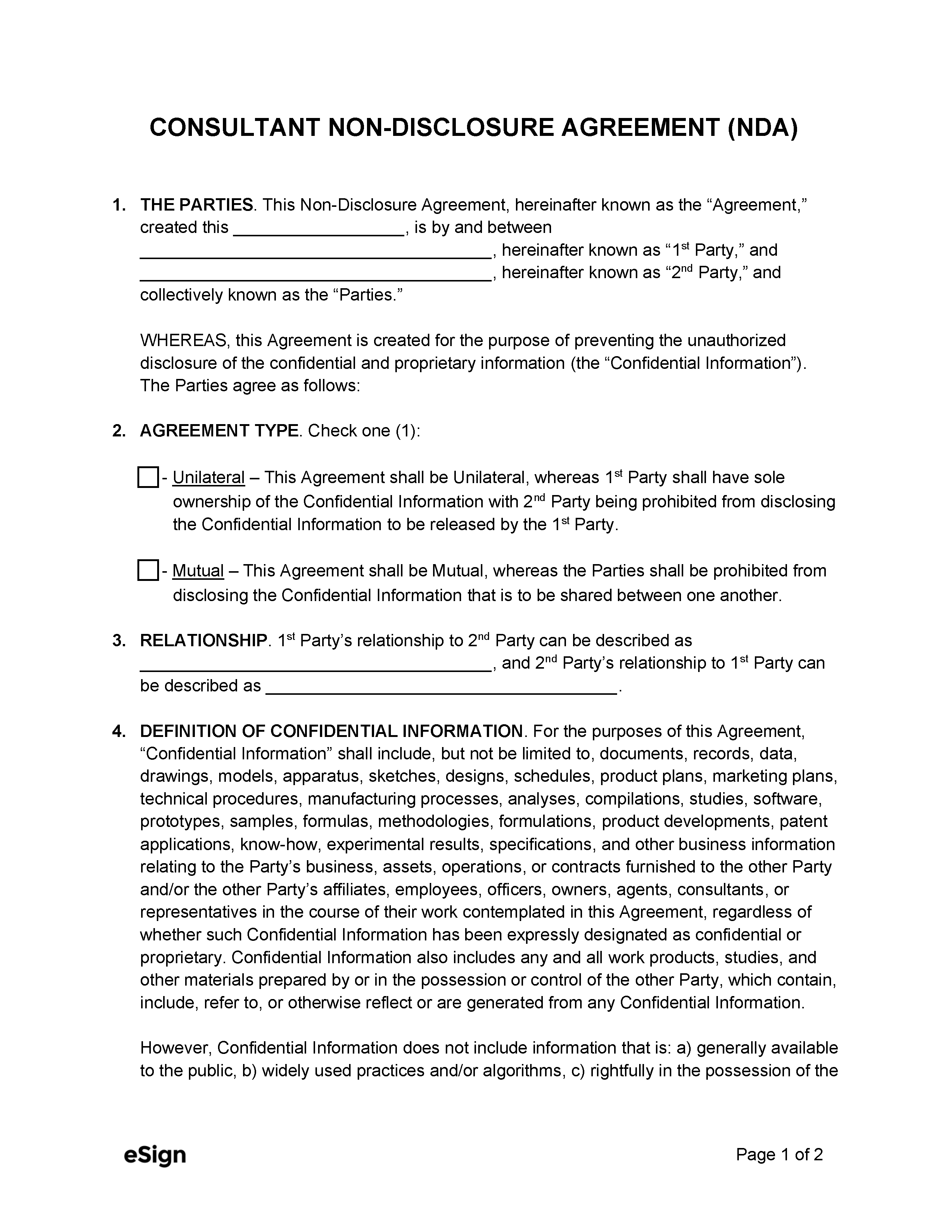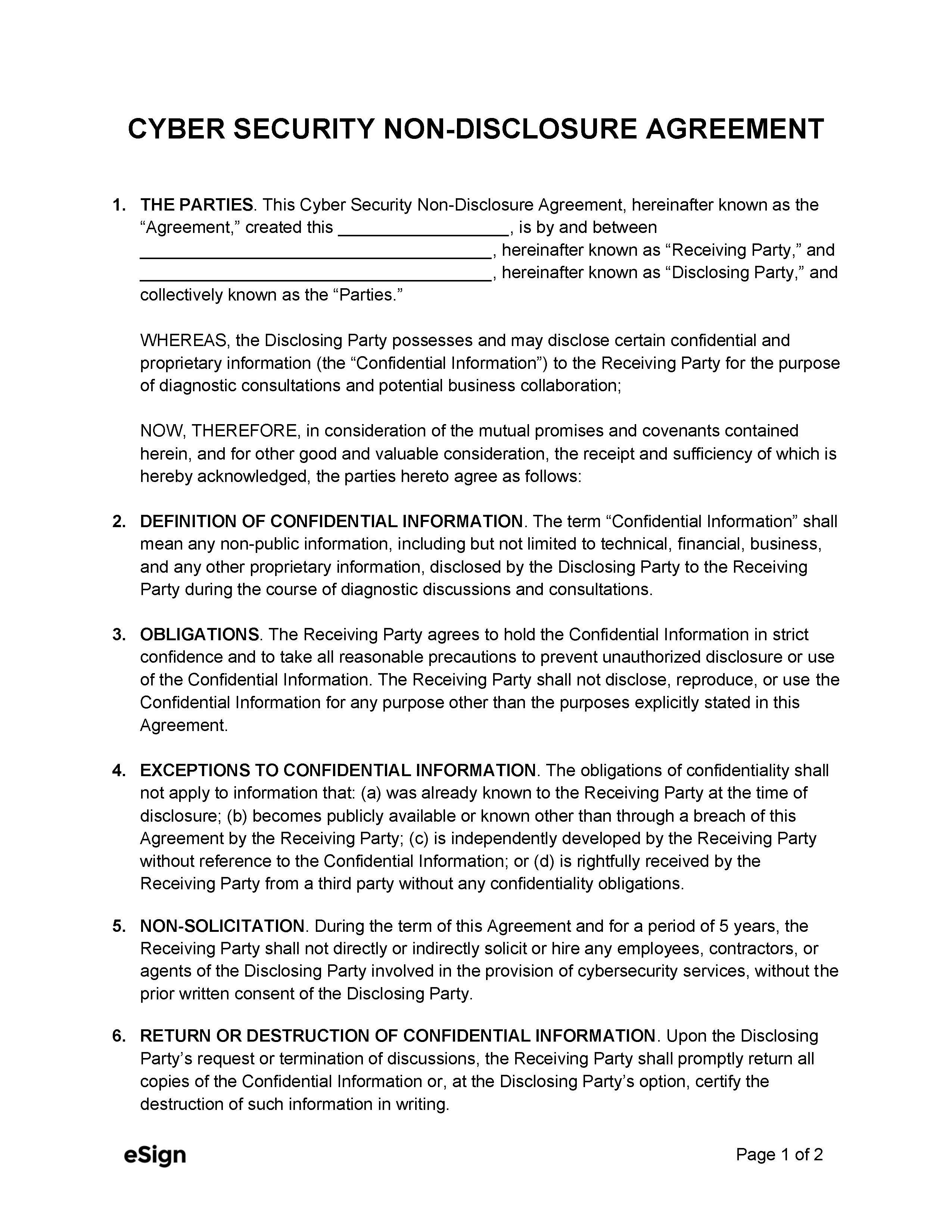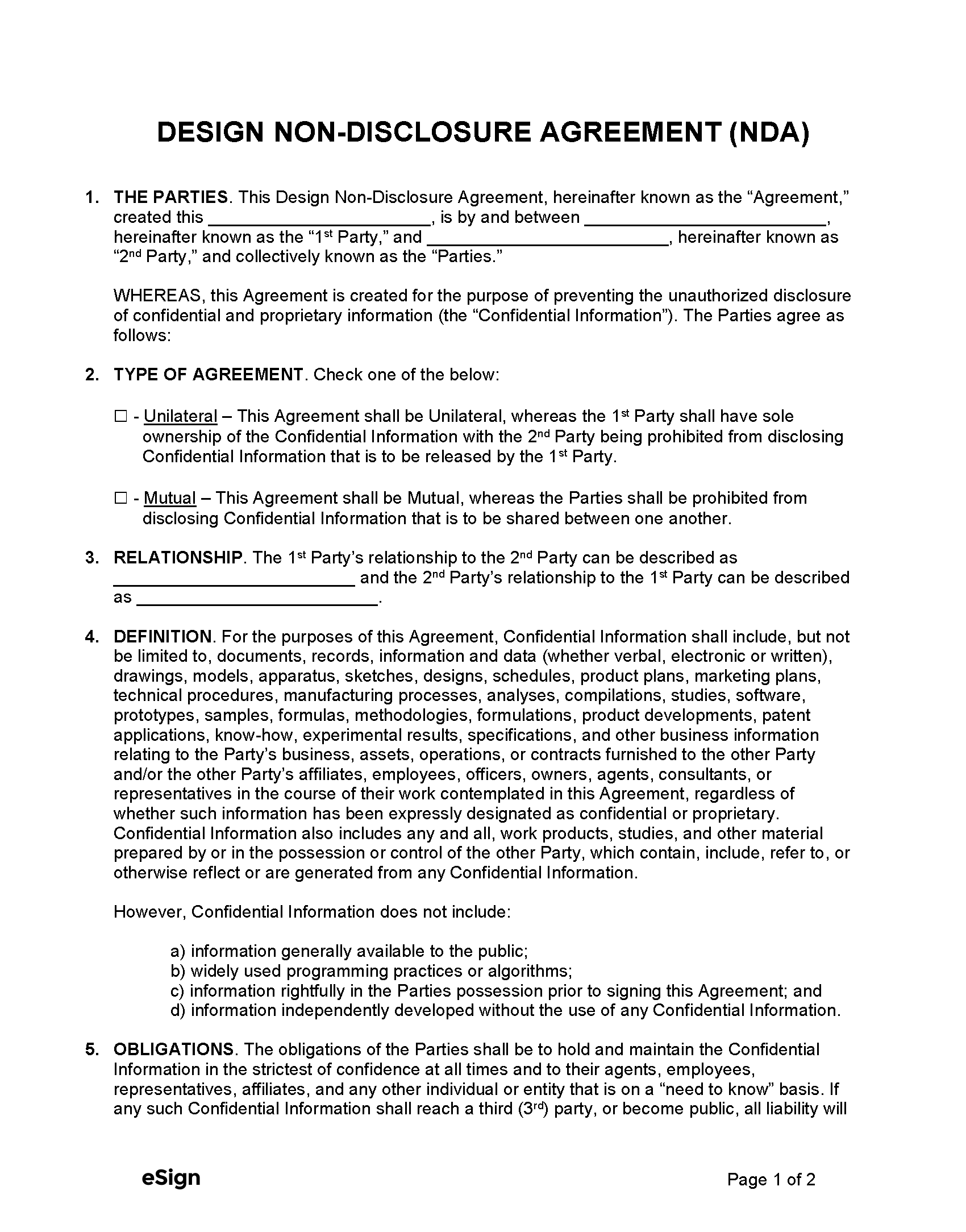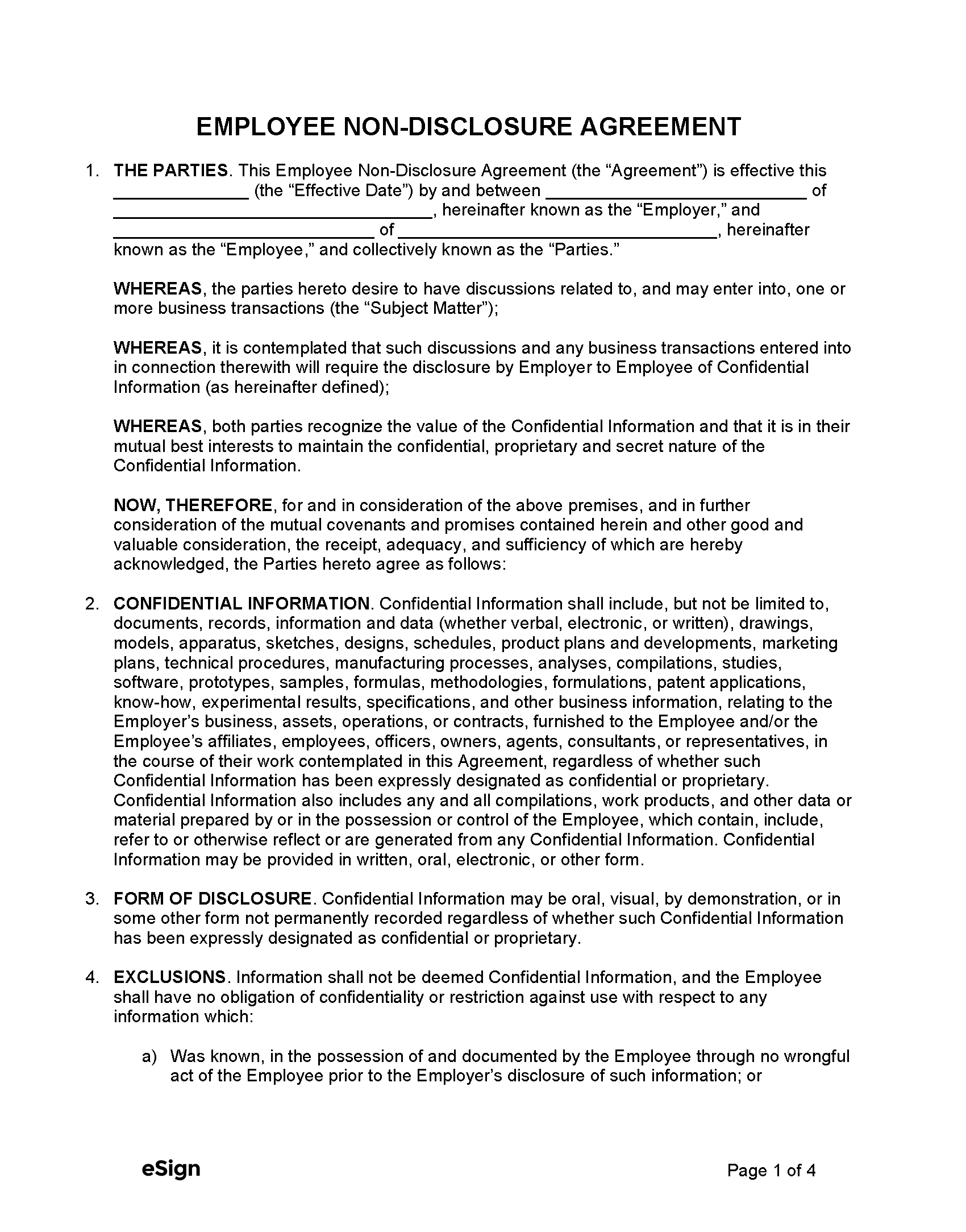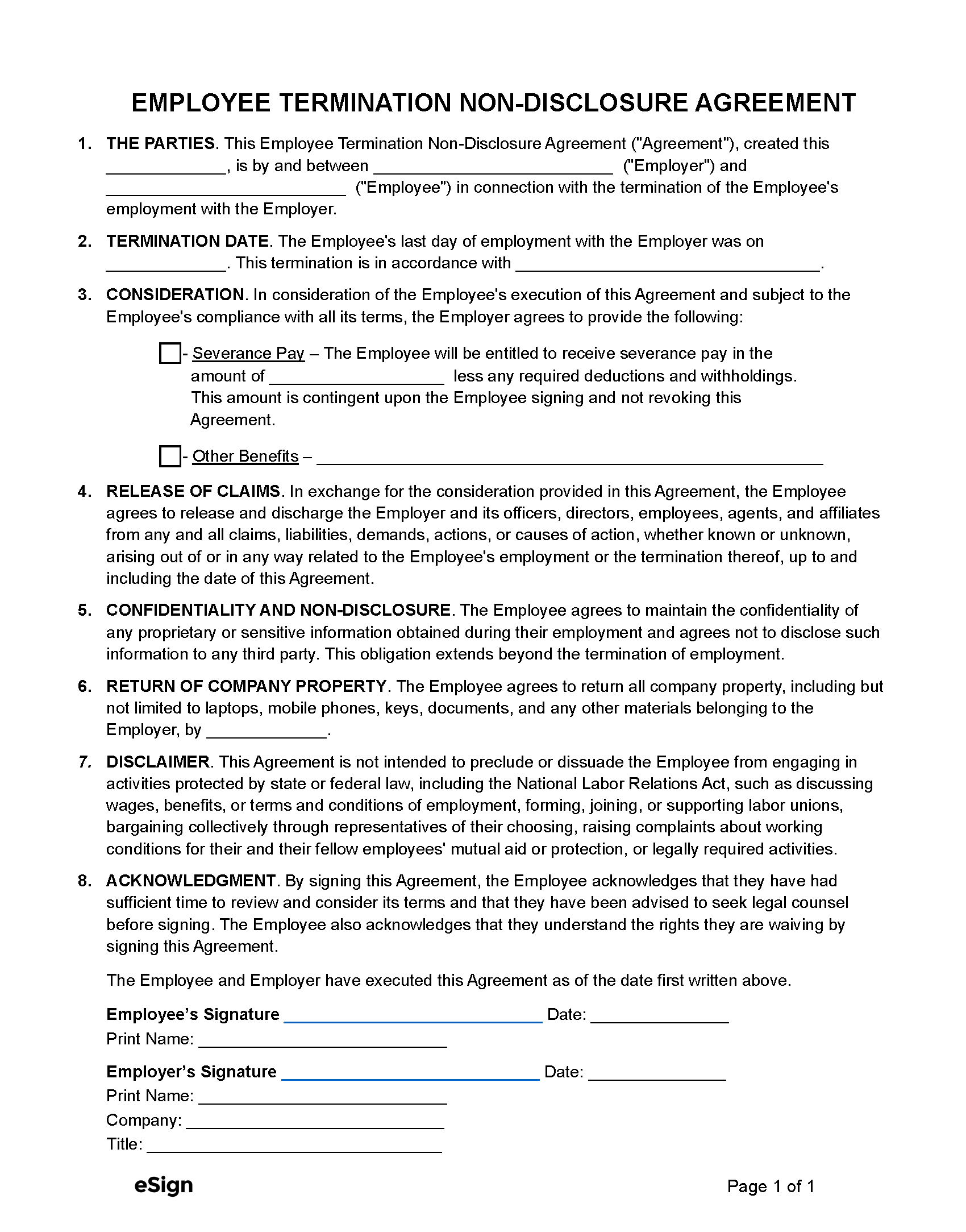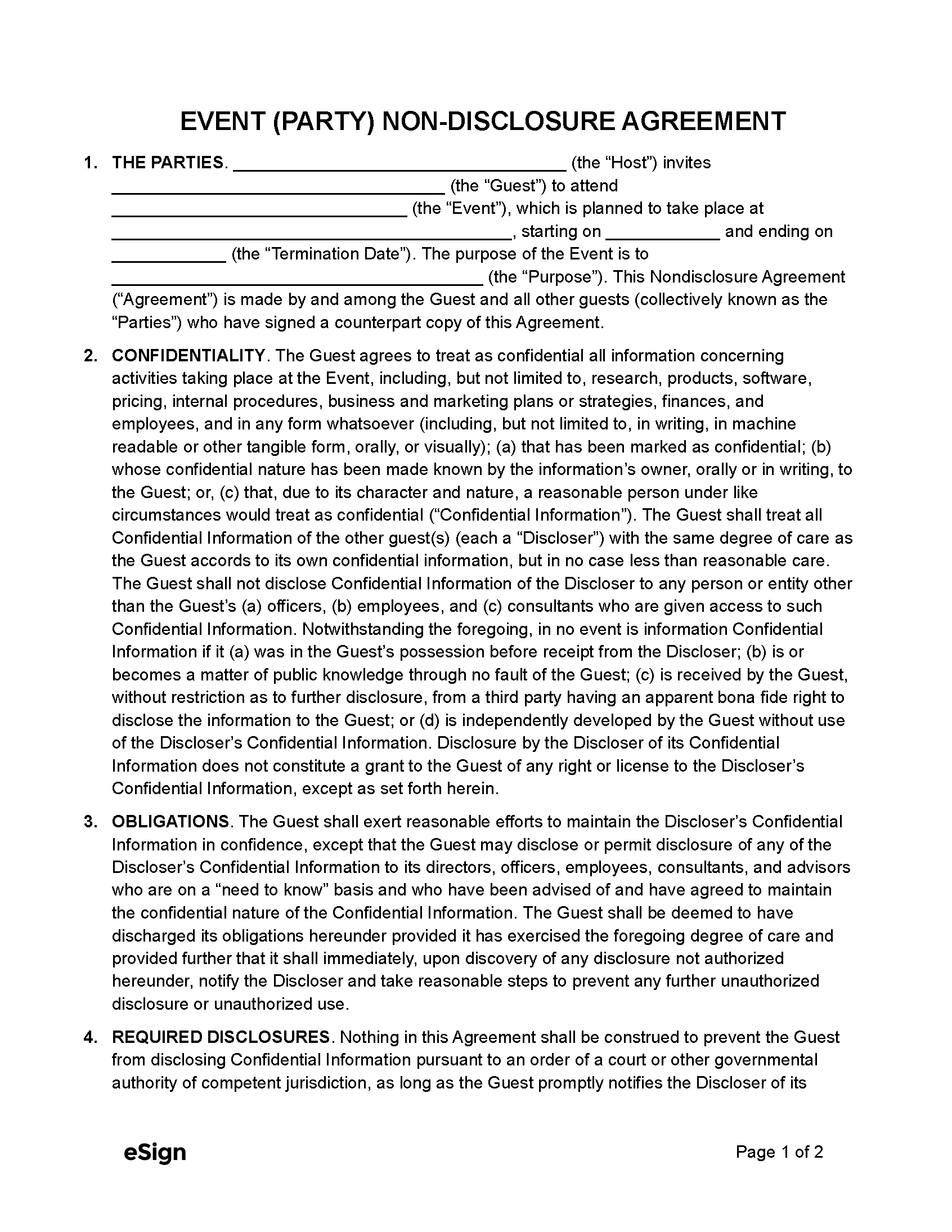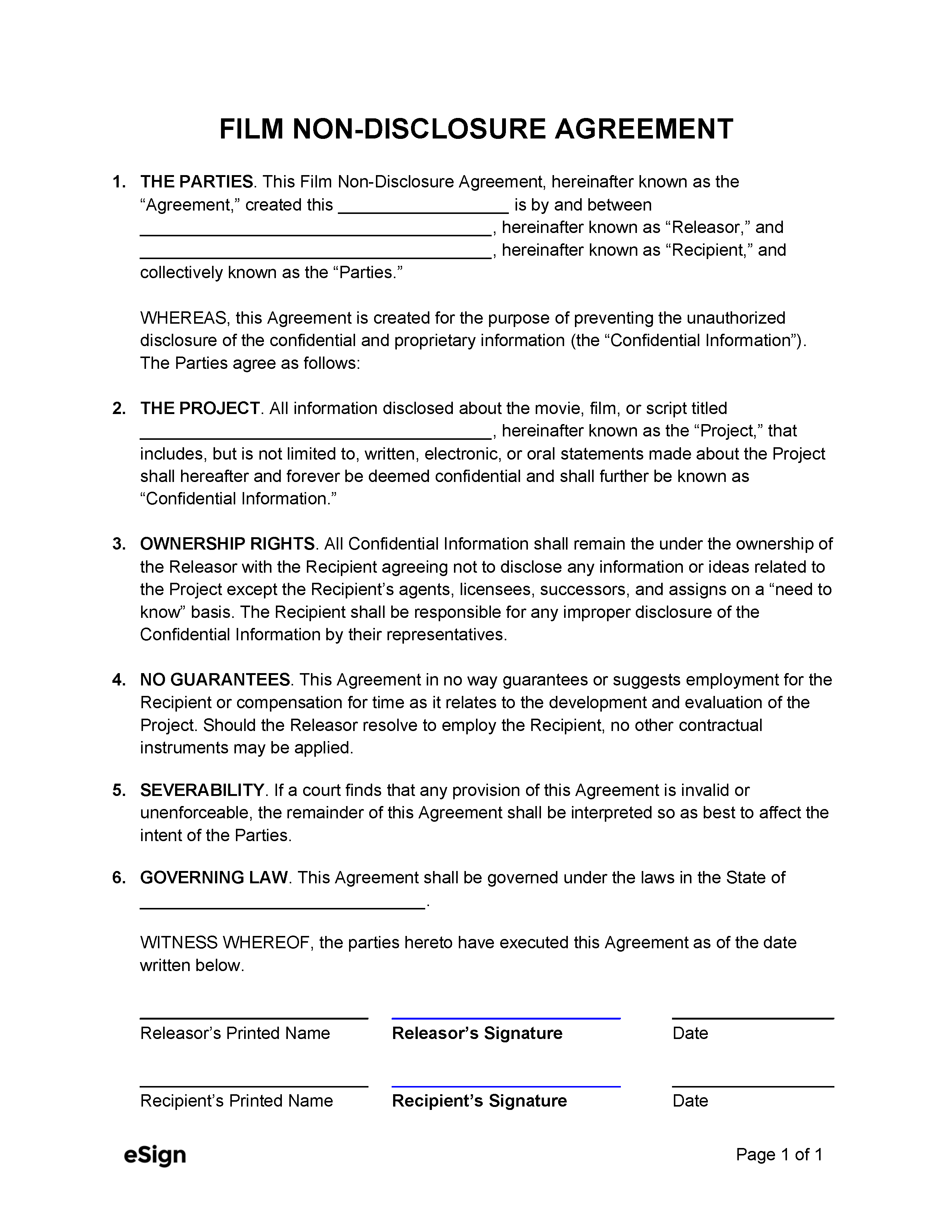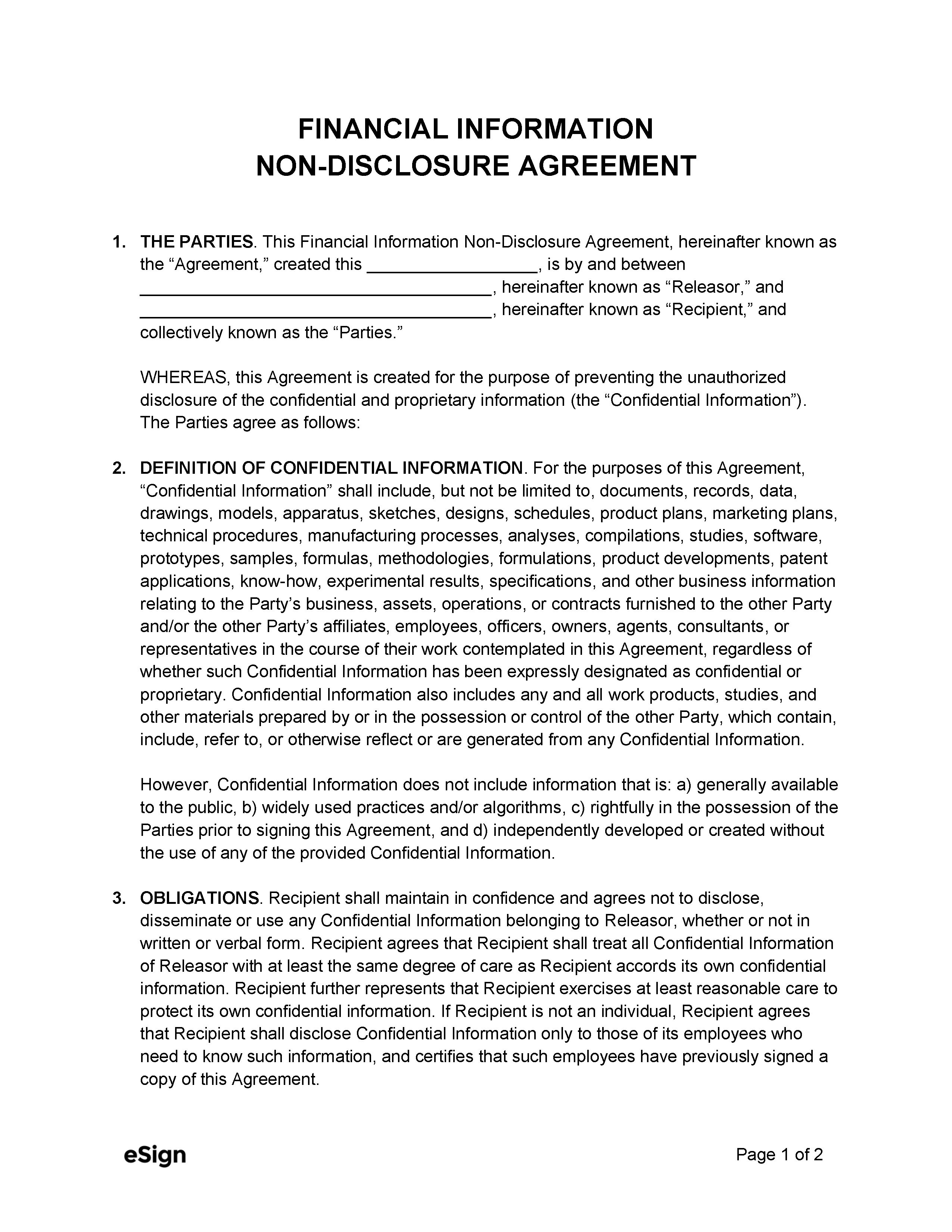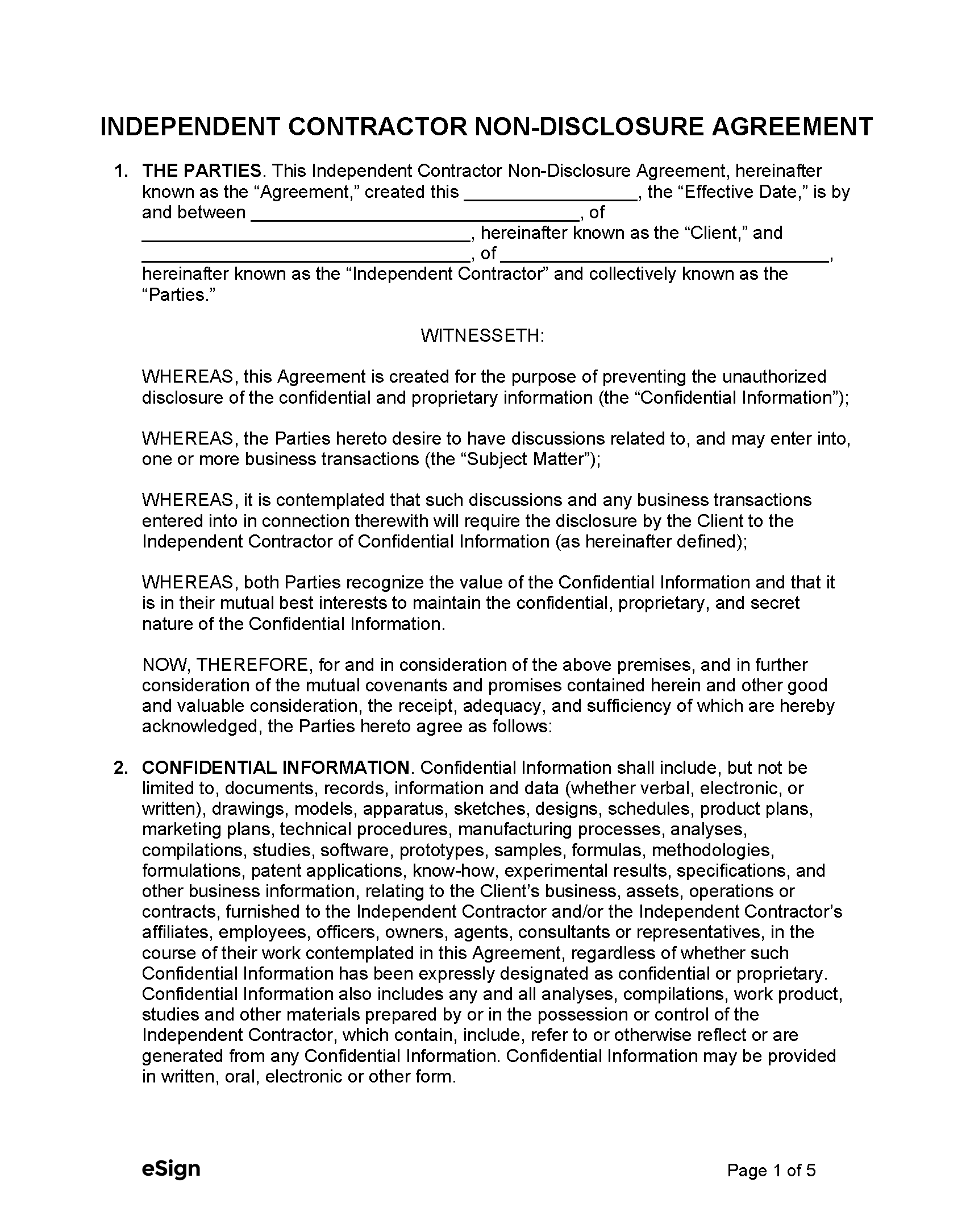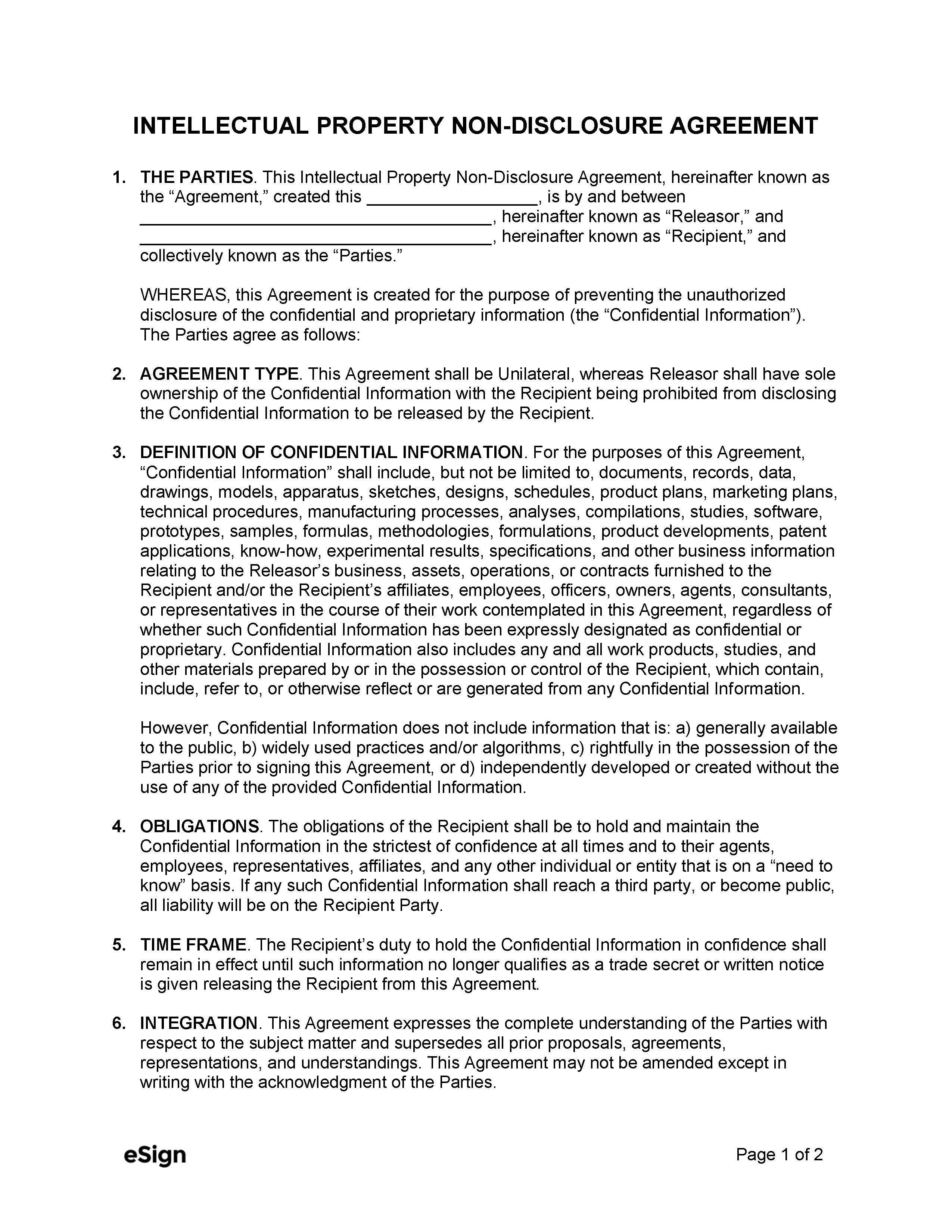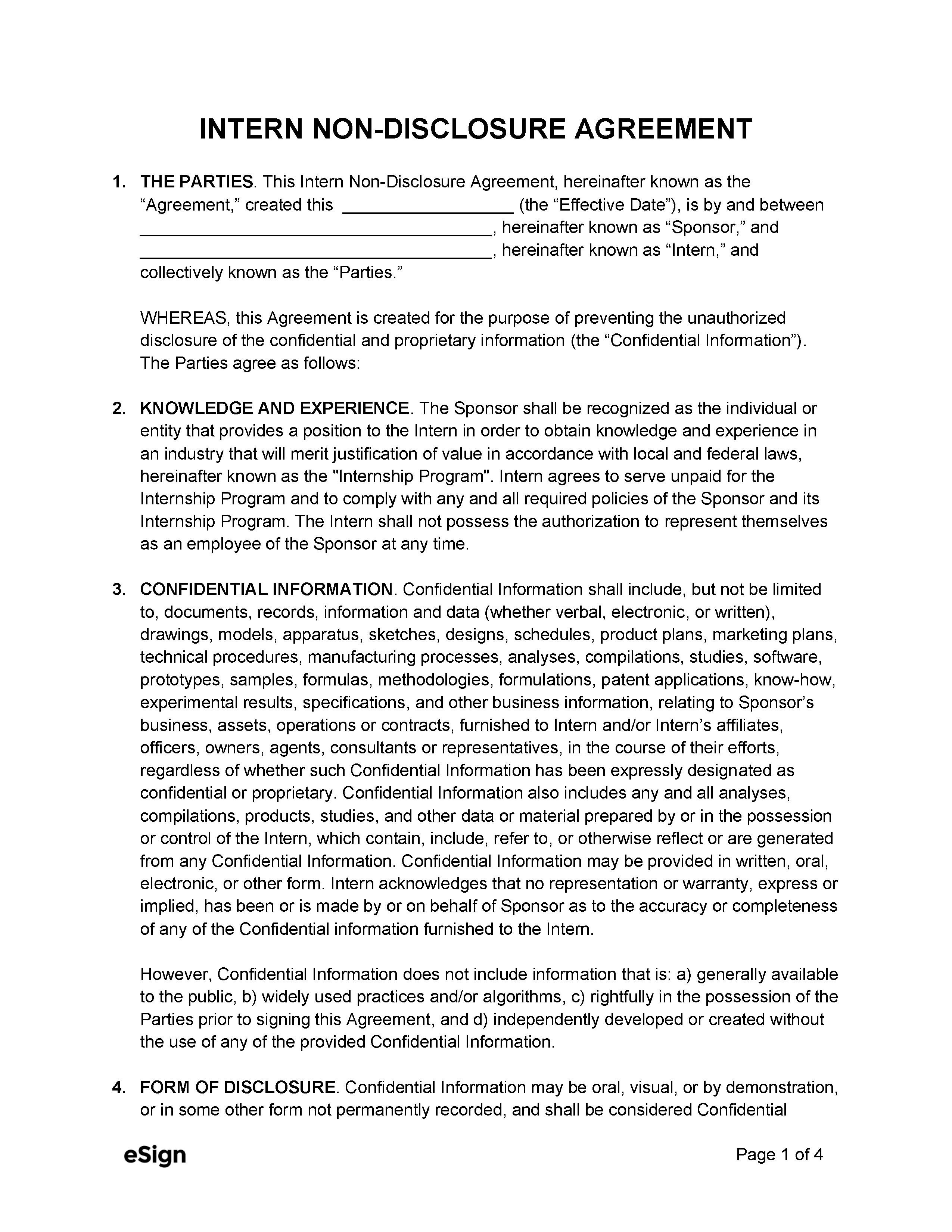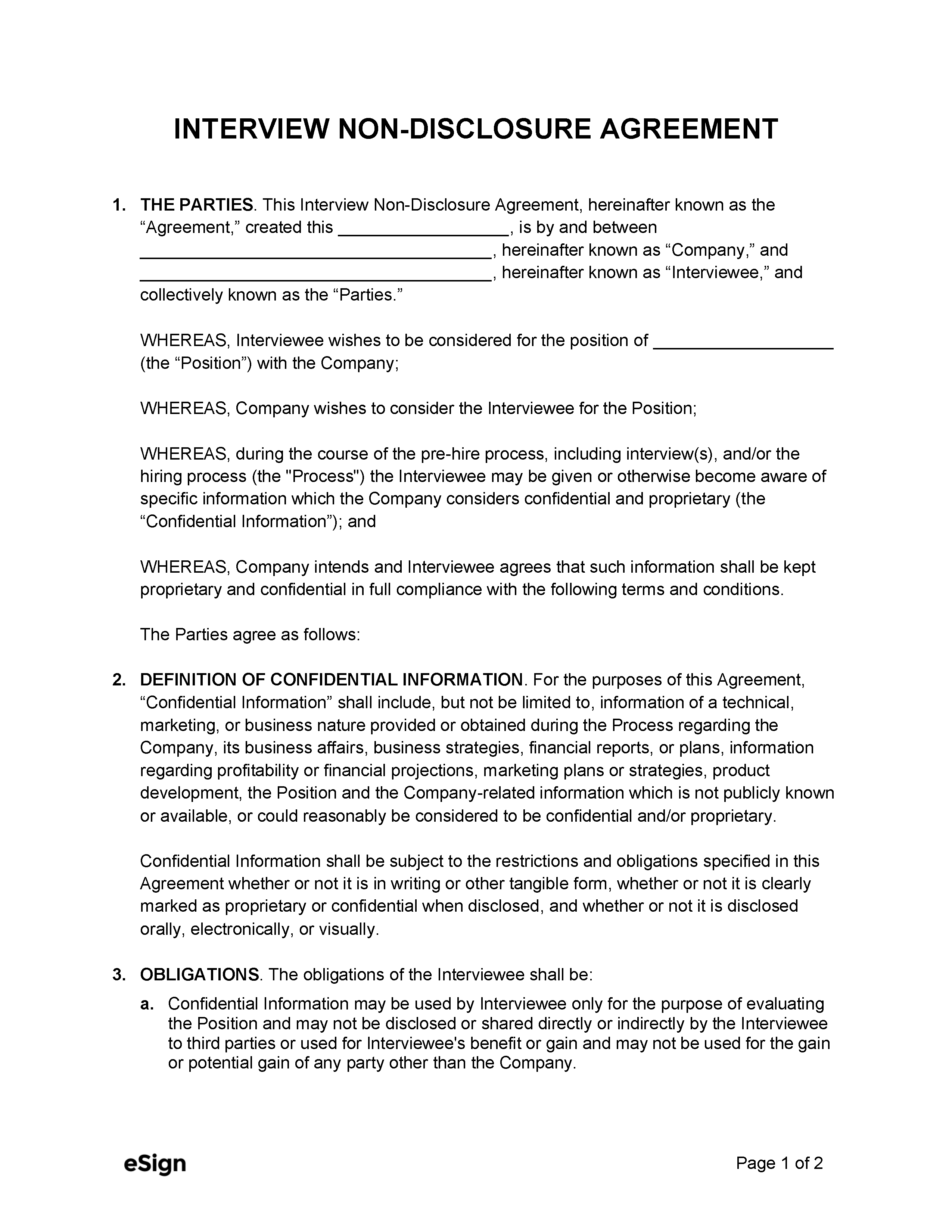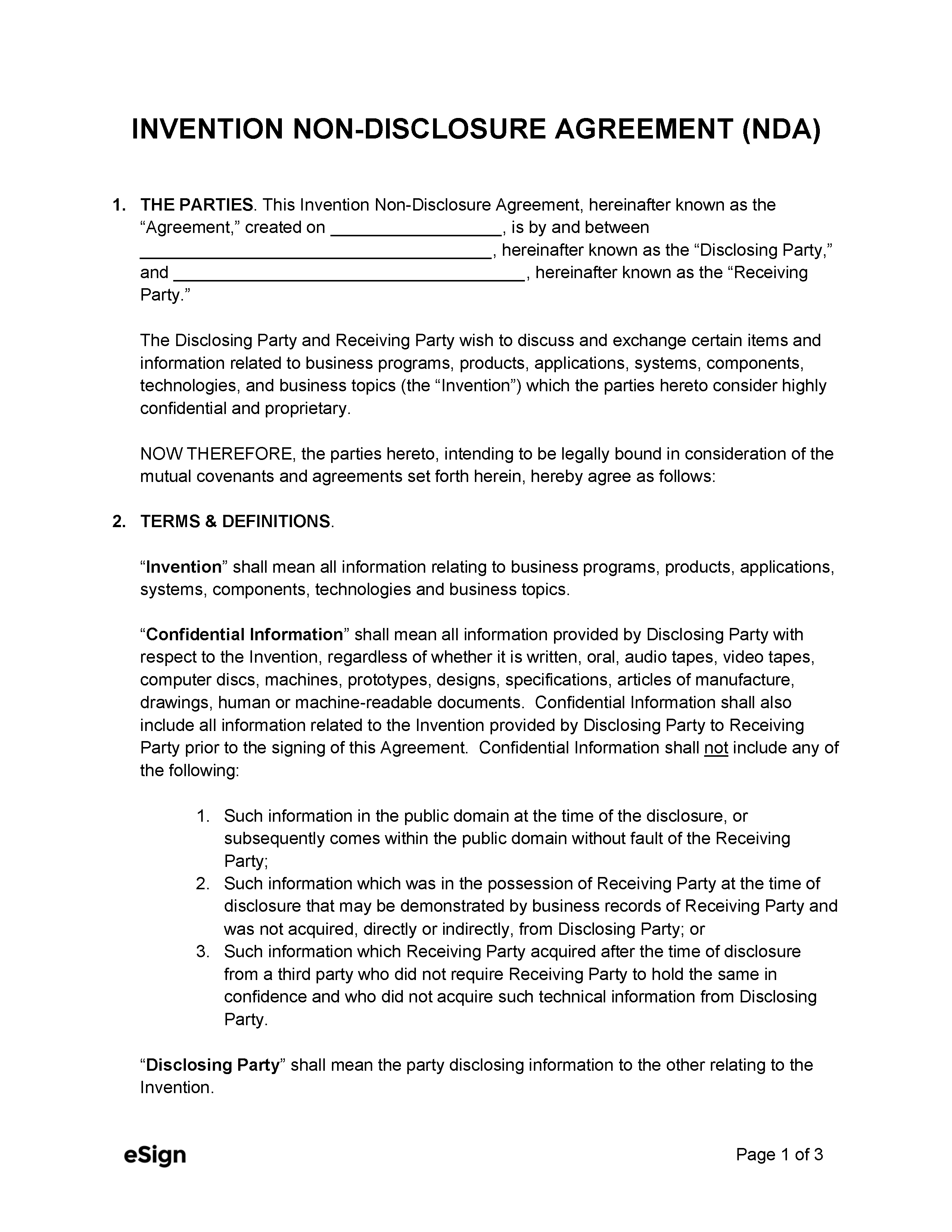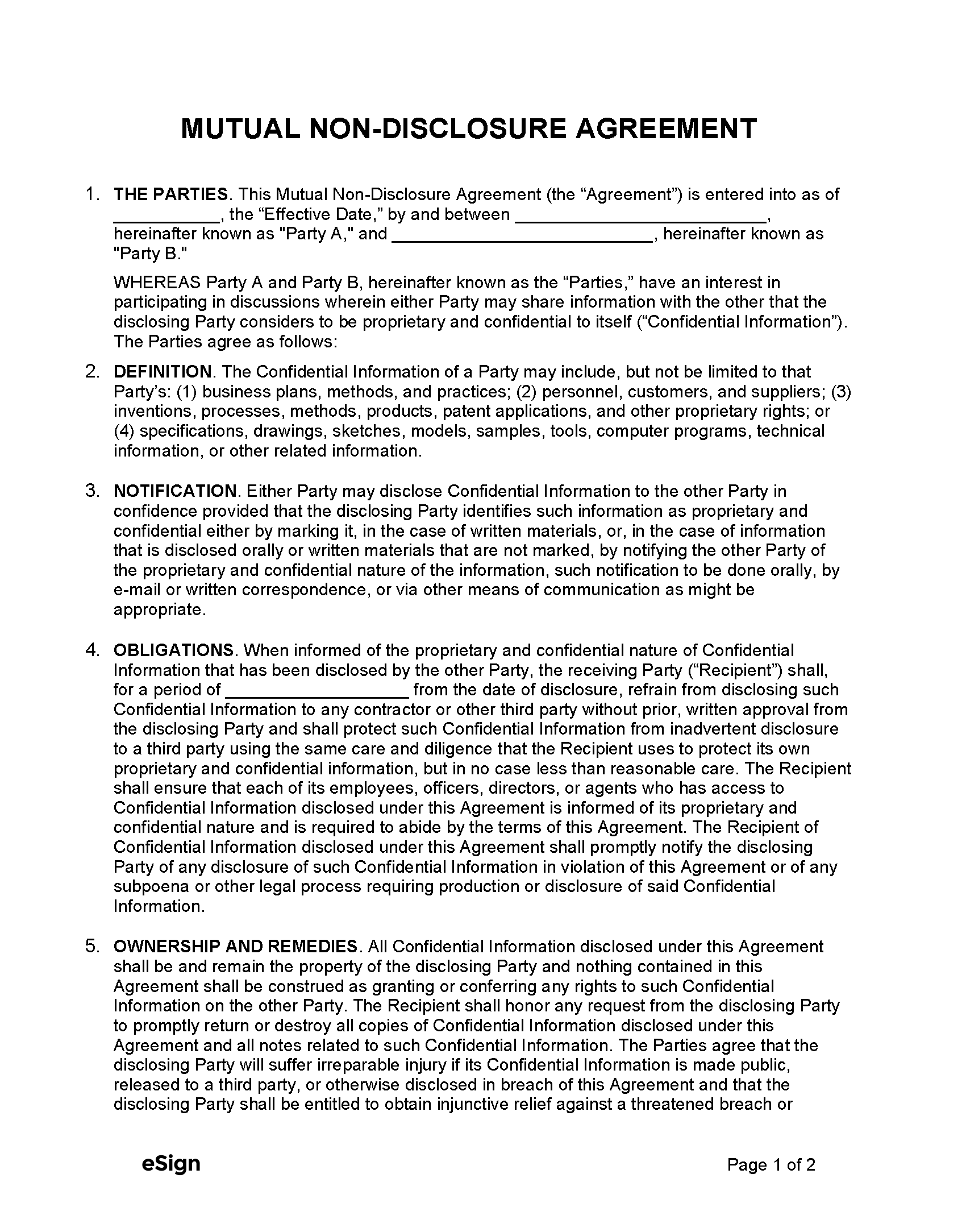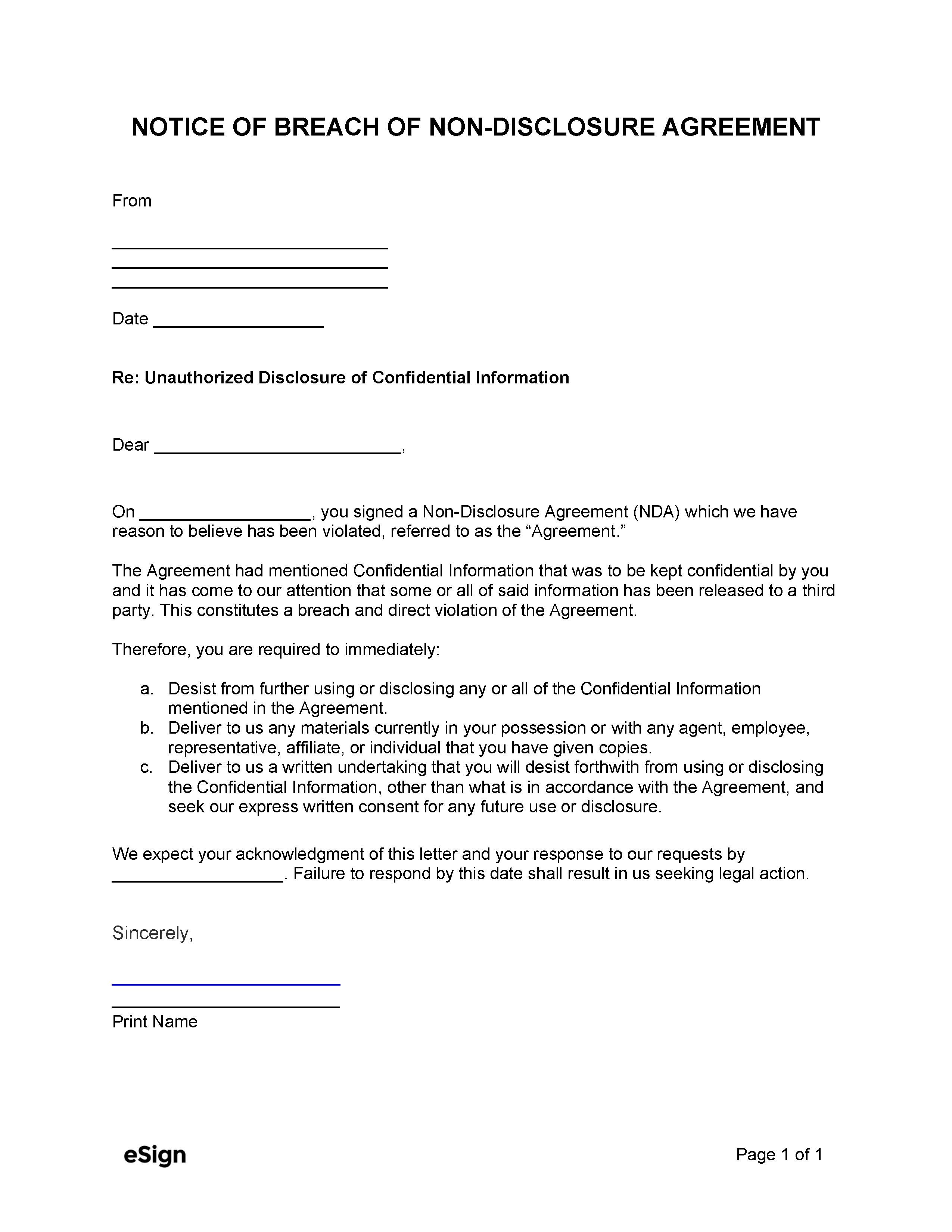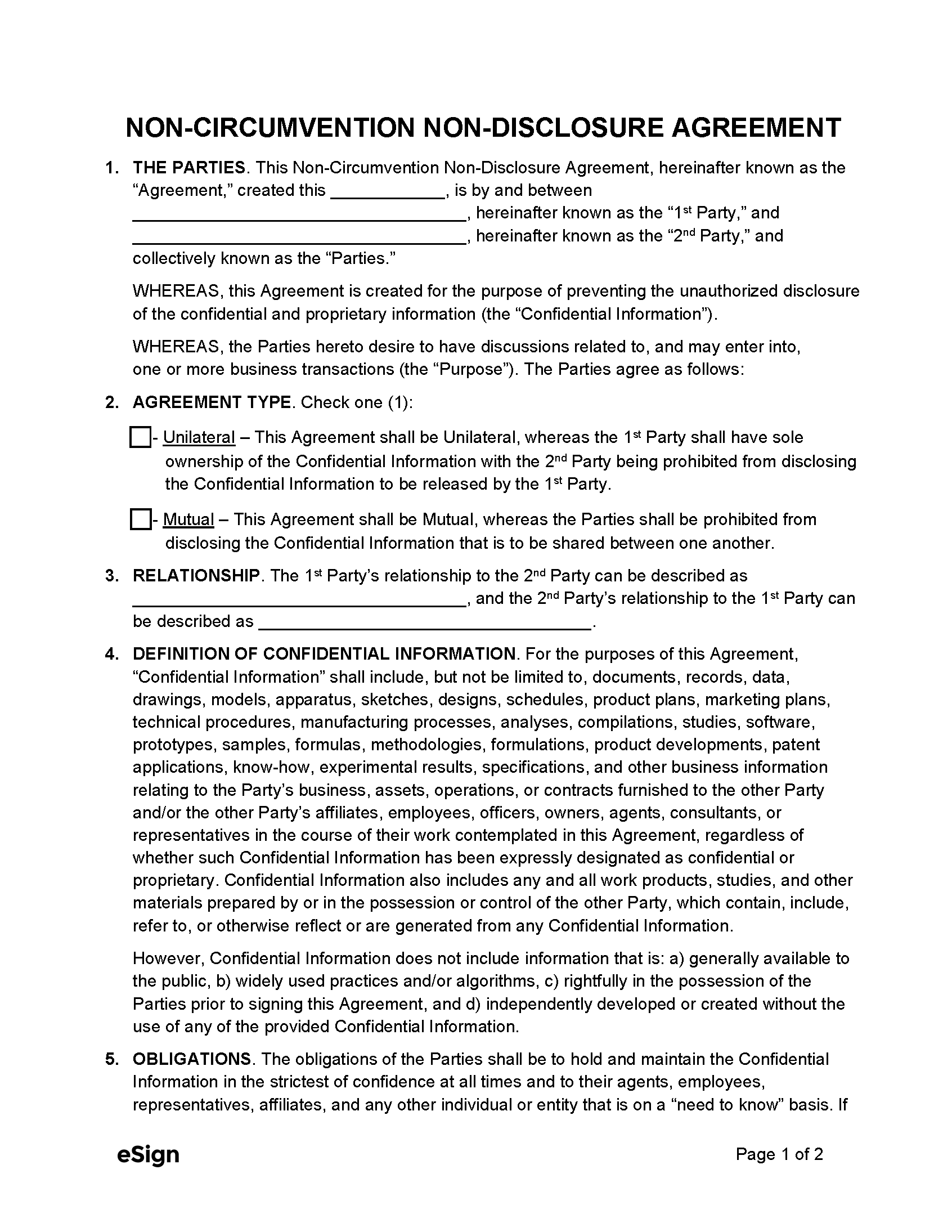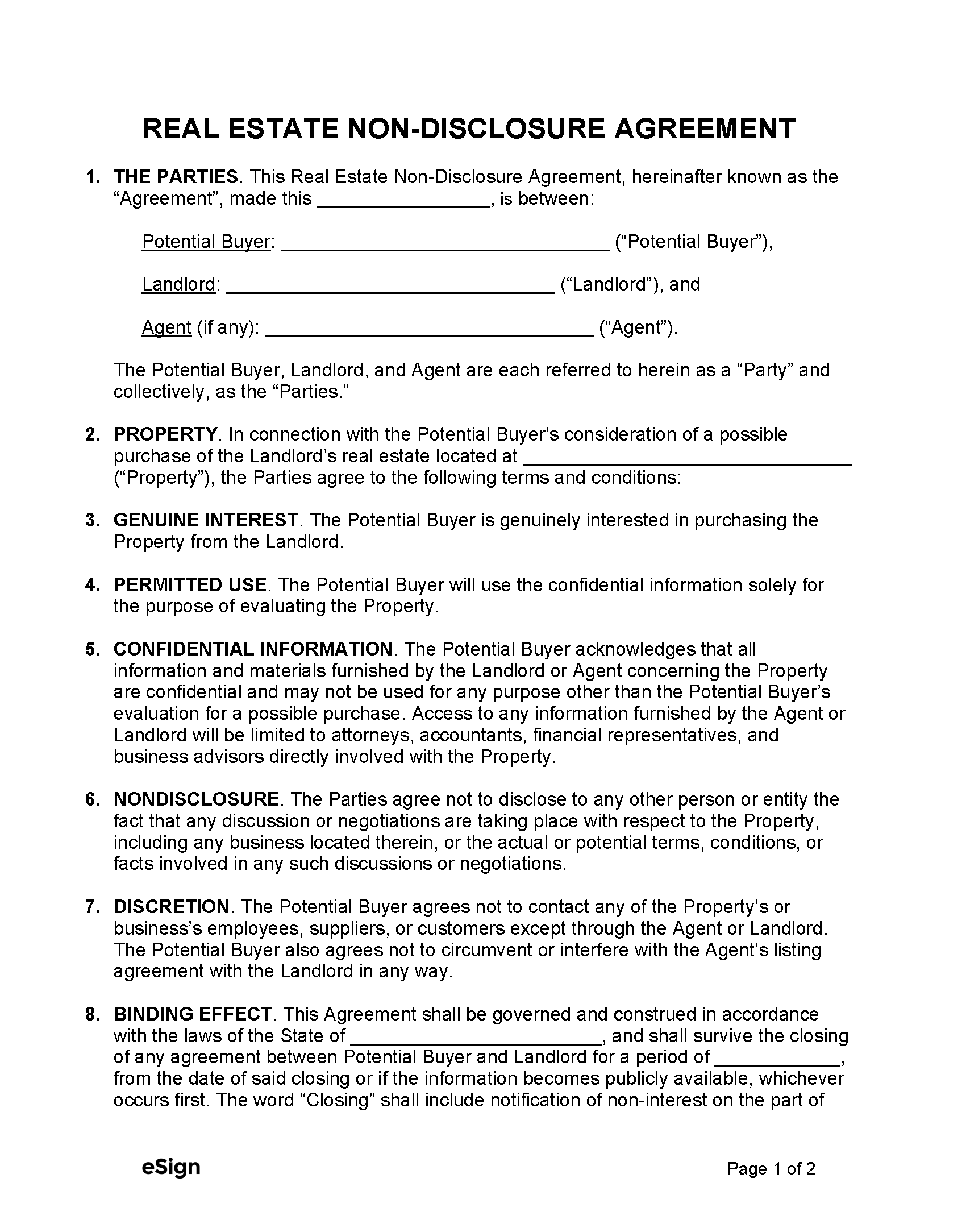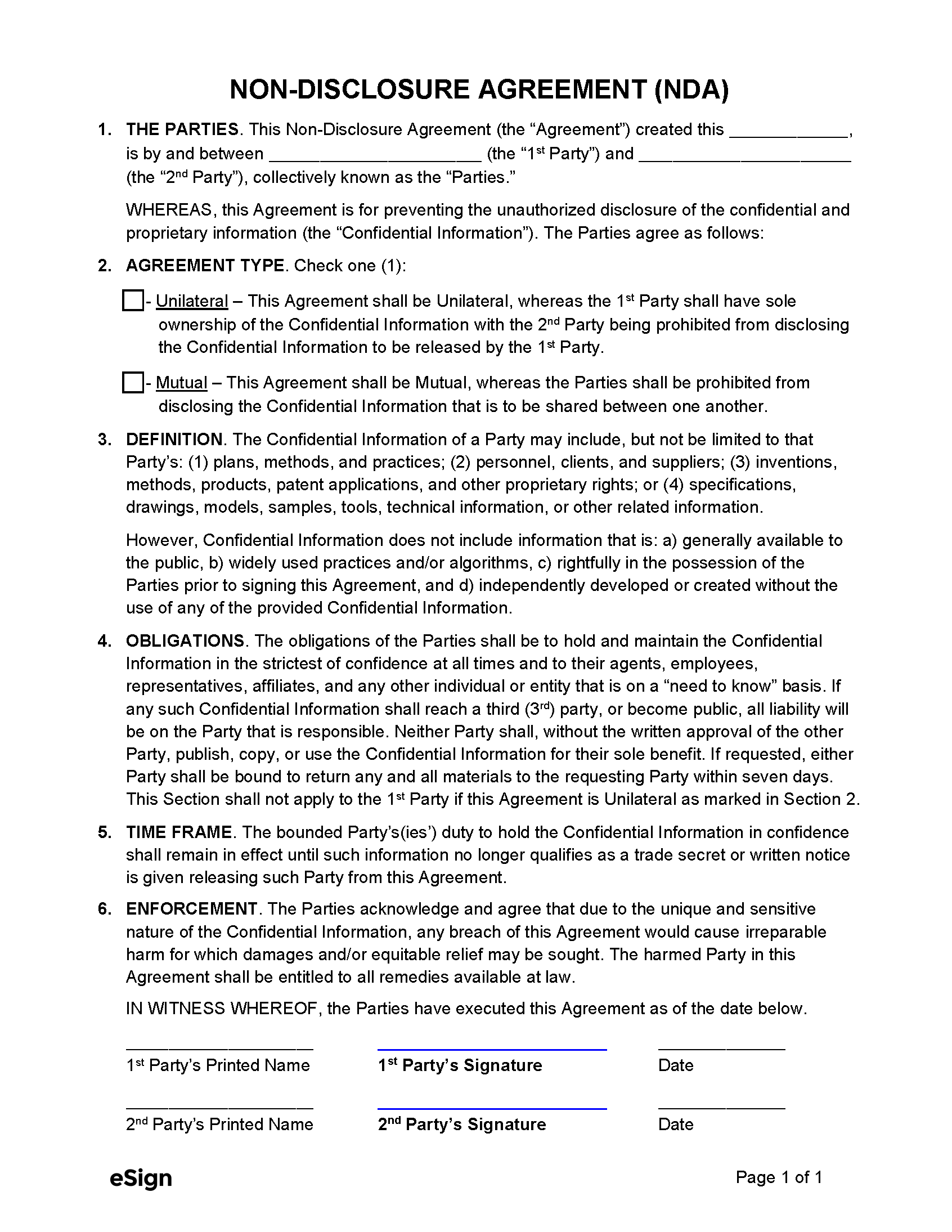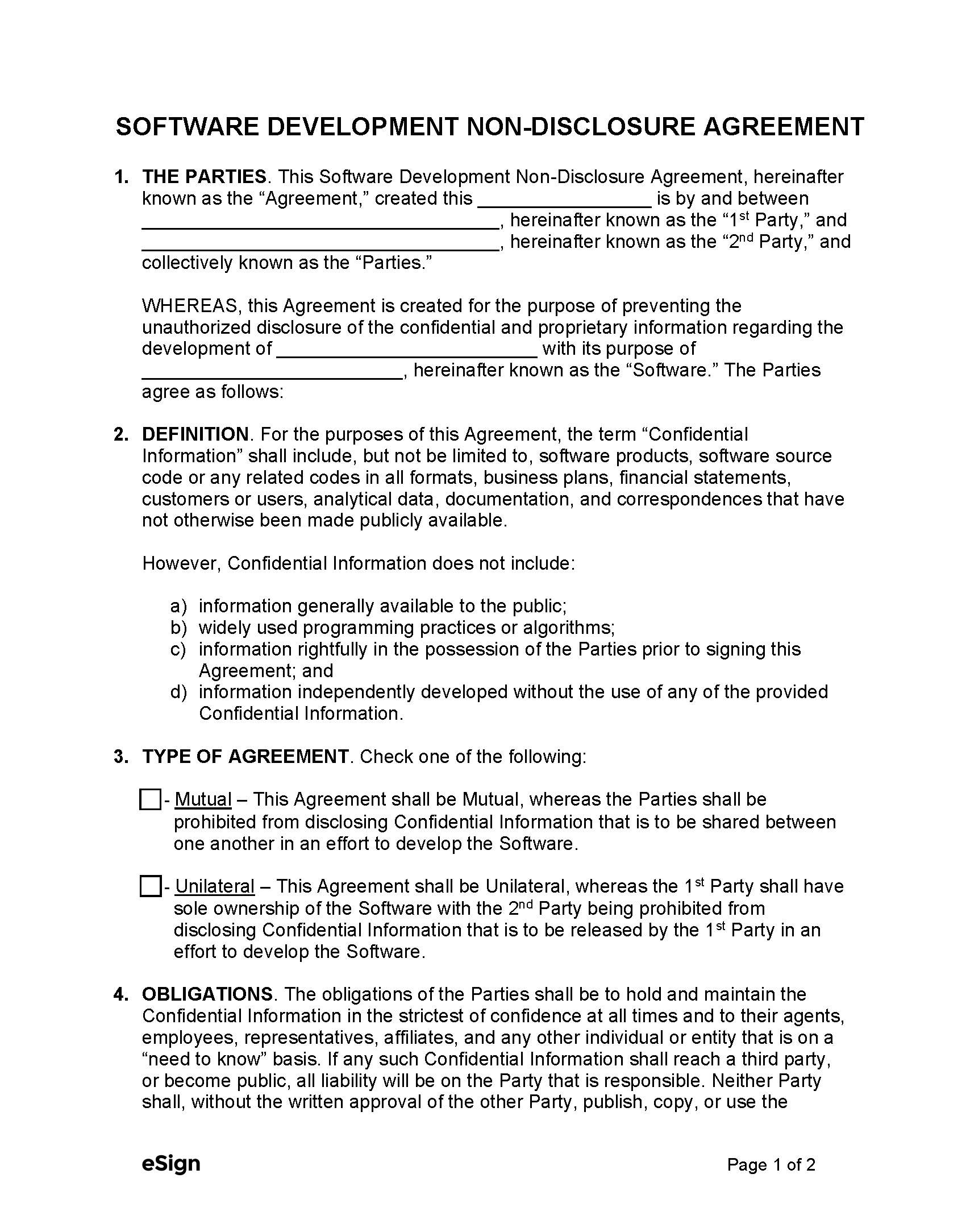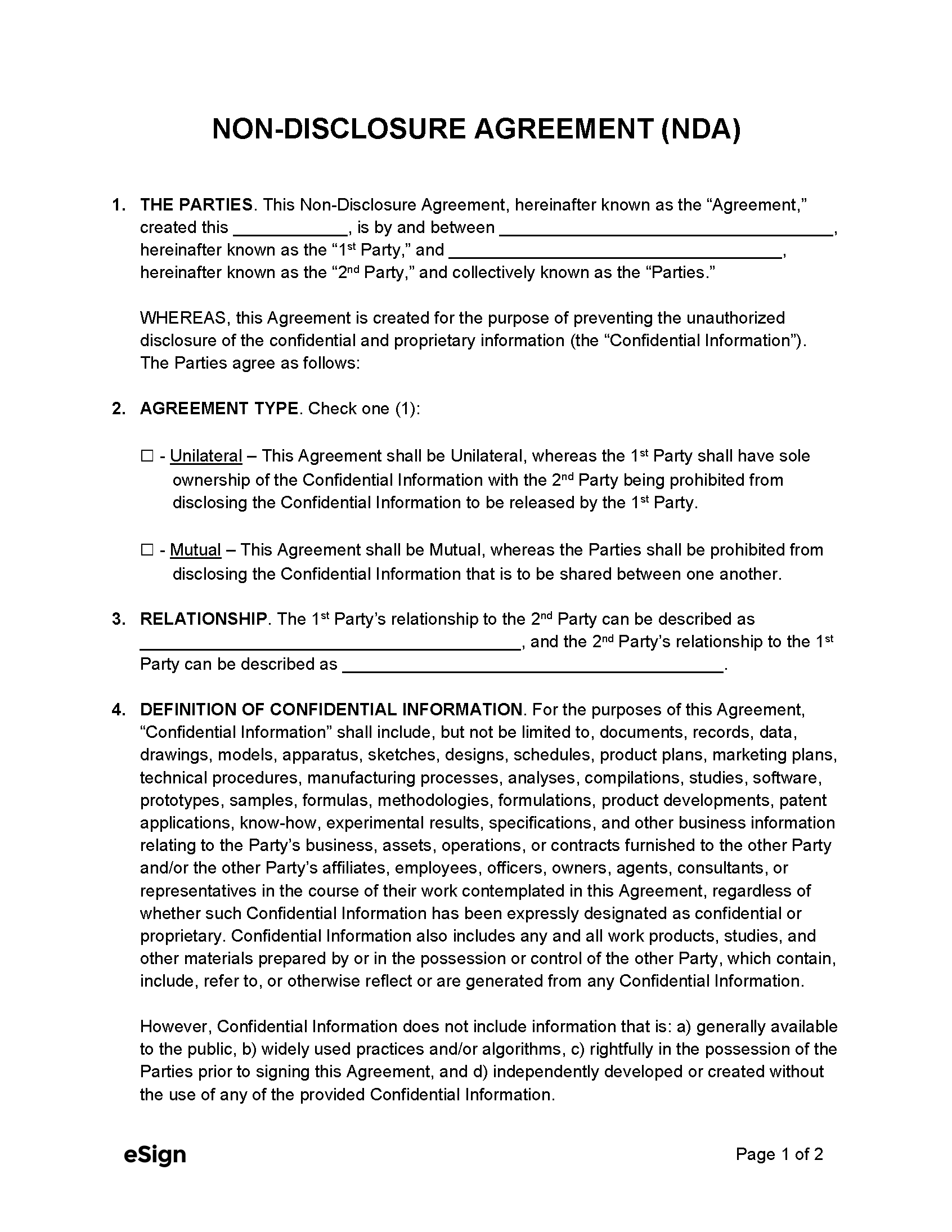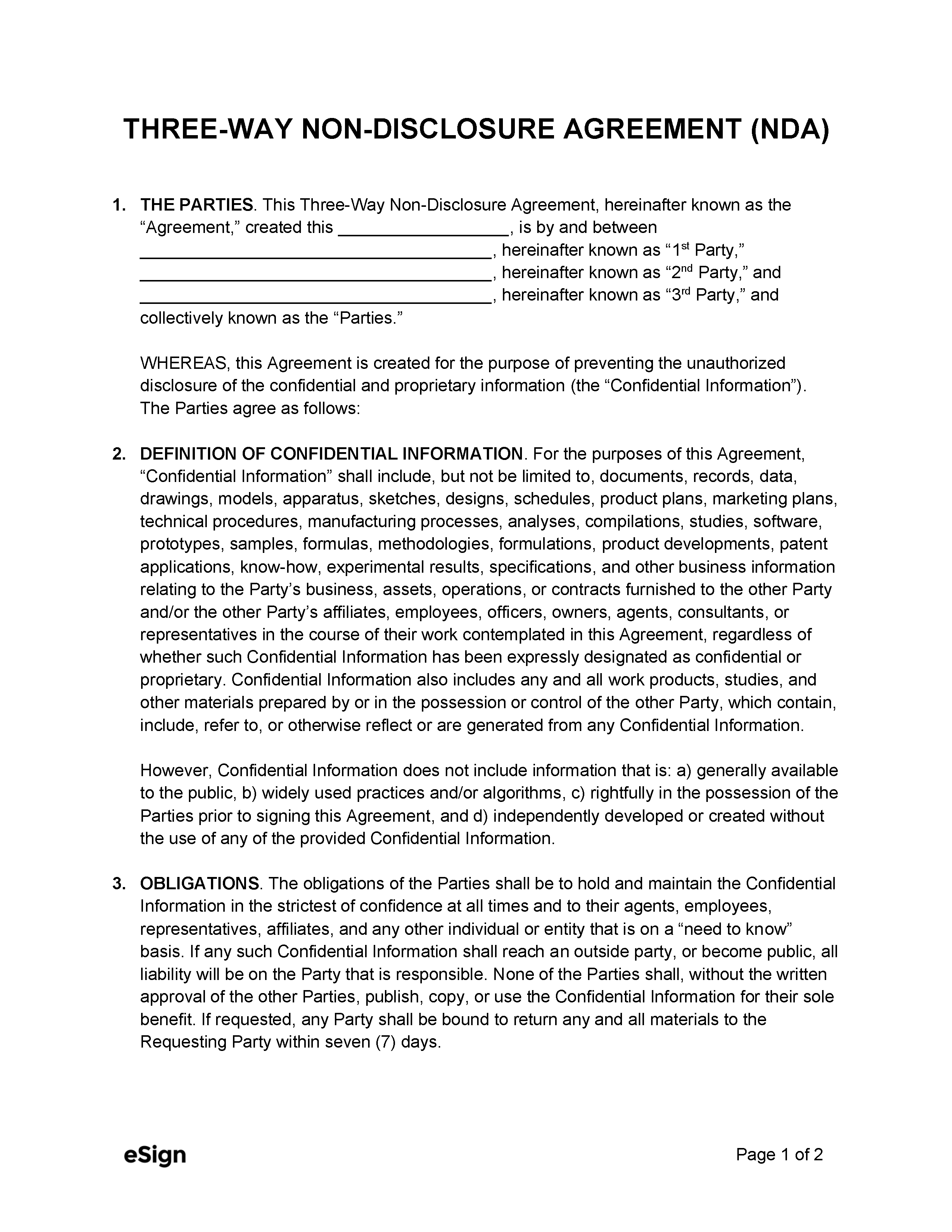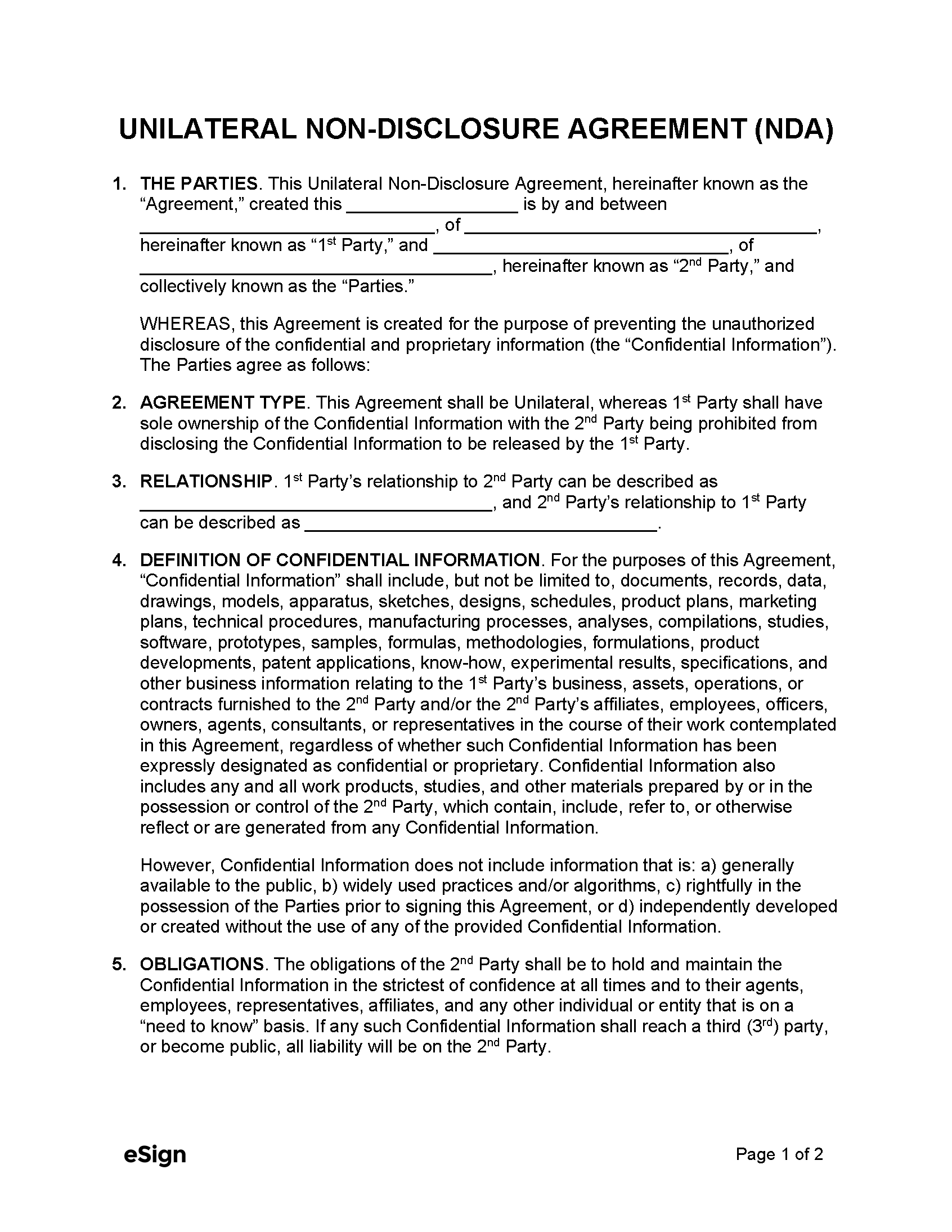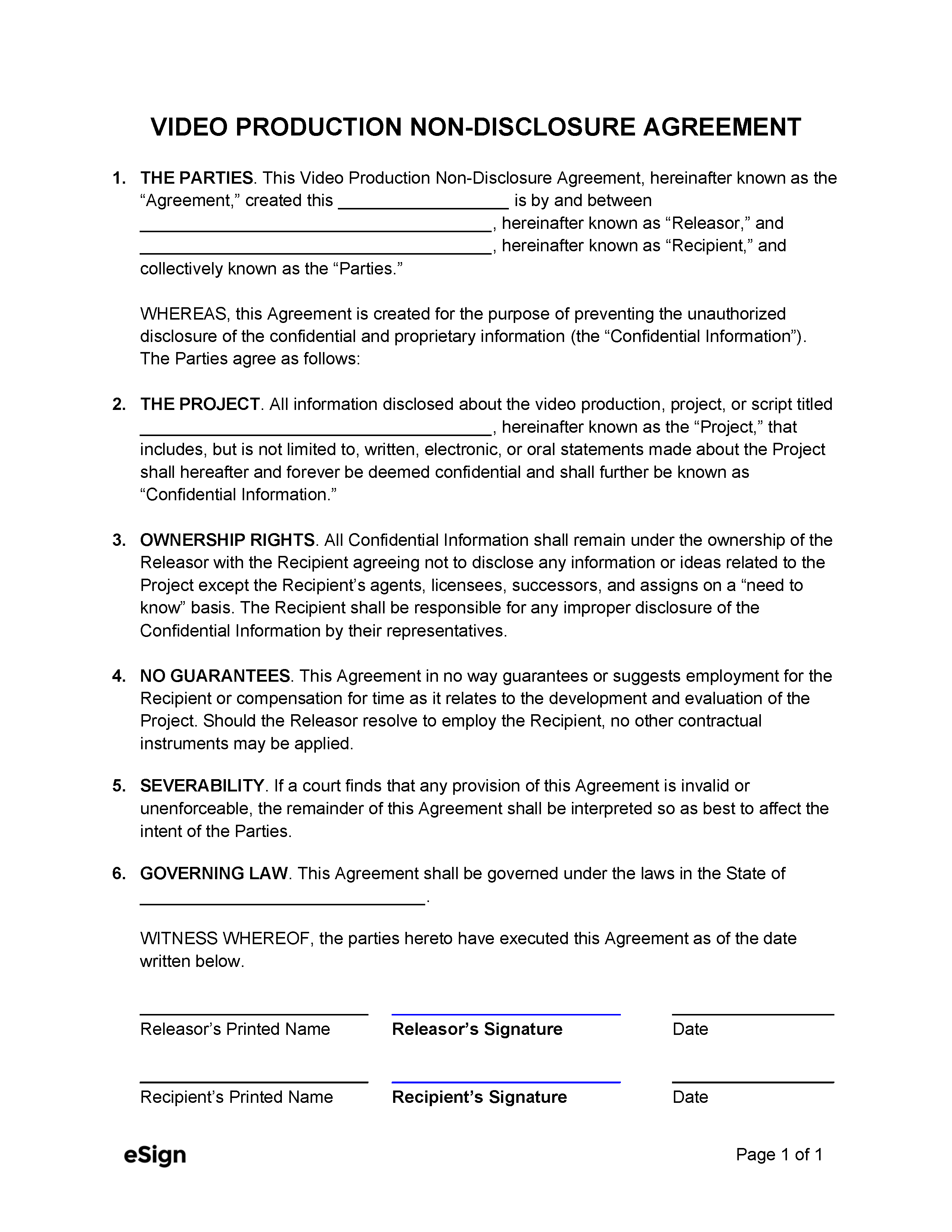By State
- Alabama
- Alaska
- Arizona
- Arkansas
- California
- Colorado
- Connecticut
- Delaware
- Florida
- Georgia
- Hawaii
- Idaho
- Illinois
- Indiana
- Iowa
- Kansas
- Kentucky
- Louisiana
- Maine
- Maryland
- Massachusetts
- Michigan
- Minnesota
- Mississippi
- Missouri
- Montana
- Nebraska
- Nevada
- New Hampshire
- New Jersey
- New Mexico
- New York
- North Carolina
- North Dakota
- Ohio
- Oklahoma
- Oregon
- Pennsylvania
- Rhode Island
- South Carolina
- South Dakota
- Tennessee
- Texas
- Utah
- Vermont
- Virginia
- Washington
- West Virginia
- Wisconsin
- Wyoming
By Type
What is a Non-Disclosure Agreement?
A non-disclosure agreement (NDA) is a form used to safeguard a company or person’s proprietary information that is valuable and generally unknown to the public. The person or company receiving confidential information is forbidden from disclosing it to any third parties. Typically, an NDA will expire after a certain period of time, such as one to three years.
A non-disclosure agreement can be drafted in three different ways to form the following types of relationships:
- Unilateral (“One-way”) – One party shares the information (the disclosing party), and another gains knowledge of it (the receiving party).
- Mutual (“Two-way”) – Both parties are required to keep information confidential.
- Multilateral – The sharing of confidential information when more than two parties are involved.
Sample
Download: PDF (Blank) | PDF (Sample Data)
NON-DISCLOSURE AGREEMENT (NDA)
1. THE PARTIES. This Non-Disclosure Agreement, hereinafter known as the “Agreement,” created this [MM/DD/YYYY], is by and between [1ST PARTY NAME], hereinafter known as “1st Party,” and [2ND PARTY NAME], hereinafter known as “2nd Party,” and collectively known as the “Parties.”
WHEREAS, this Agreement is created for the purpose of preventing the unauthorized disclosure of the confidential and proprietary information (the “Confidential Information”). The Parties agree as follows:
2. AGREEMENT TYPE. Check one (1):
☐ – Unilateral – This Agreement shall be Unilateral, whereas 1st Party shall have sole ownership of the Confidential Information with 2nd Party being prohibited from disclosing the Confidential Information to be released by the 1st Party.
☐ – Mutual – This Agreement shall be Mutual, whereas the Parties shall be prohibited from disclosing the Confidential Information that is to be shared between one another.
3. RELATIONSHIP. 1st Party’s relationship to 2nd Party can be described as [1ST PARTY RELATIONSHIP], and 2nd Party’s relationship to 1st Party can be described as [2ND PARTY RELATIONSHIP].
4. DEFINITION OF CONFIDENTIAL INFORMATION. The Confidential Information of a Party may include, but not be limited to that Party’s: (1) plans, methods, and practices; (2) personnel, clients, and suppliers; (3) inventions, methods, products, patent applications, and other proprietary rights; or (4) specifications, drawings, models, samples, tools, technical information, or other related information. However, Confidential Information does not include information that is: a) generally available to the public, b) widely used practices and/or algorithms, c) rightfully in the possession of the Parties prior to signing this Agreement, and d) independently developed or created without the use of any of the provided Confidential Information.
5. OBLIGATIONS. The obligations of the Parties shall be to hold and maintain the Confidential Information in the strictest of confidence at all times and to their agents, employees, representatives, affiliates, and any other individual or entity that is on a “need to know” basis. If any such Confidential Information shall reach a third (3rd) party, or become public, all liability will be on the Party that is responsible. Neither Party shall, without the written approval of the other Party, publish, copy, or use the Confidential Information for their sole benefit. If requested, either Party shall be bound to return any and all materials to the Requesting Party within seven (7) days. This Section shall not apply to the 1st Party if this Agreement is Unilateral as marked in Section 2.
6. TIME FRAME. The bounded Party’s(ies’) duty to hold the Confidential Information in confidence shall remain in effect until such information no longer qualifies as a trade secret or written notice is given releasing such Party from this Agreement.
7. INTEGRATION. This Agreement expresses the complete understanding of the Parties with respect to the subject matter and supersedes all prior proposals, agreements, representations, and understandings. This Agreement may not be amended except in writing with the acknowledgment of the Parties.
8. SEVERABILITY. If a court finds that any provision of this Agreement is invalid or unenforceable, the remainder of this Agreement shall be interpreted so as best to affect the intent of the Parties.
9. ENFORCEMENT. The Parties acknowledge and agree that due to the unique and sensitive nature of the Confidential Information, any breach of this Agreement would cause irreparable harm for which damages and/or equitable relief may be sought. The harmed Party in this Agreement shall be entitled to all remedies available at law.
10. GOVERNING LAW. This Agreement shall be governed under the laws in the State of [STATE NAME].
WITNESS WHEREOF, the parties hereto have executed this Agreement as of the date written below.
1st Party Signature: _____________________ Date: [MM/DD/YYYY]
Printed Name: [1ST PARTY NAME]
2nd Party Signature: _____________________ Date: [MM/DD/YYYY]
Printed Name: [2ND PARTY NAME]
